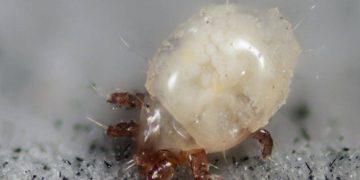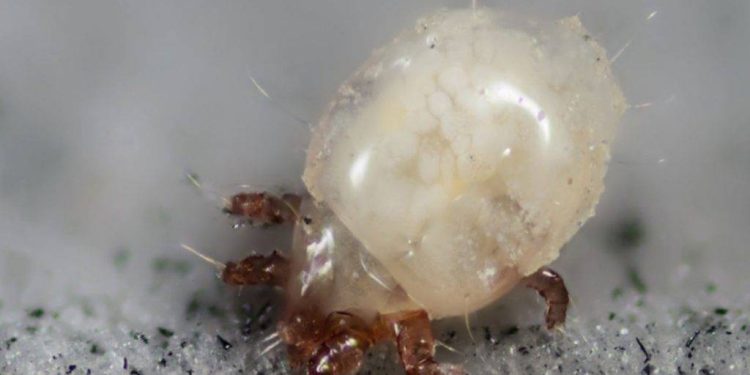BulbMites #PlantPest #Horticulture #PlantHealth #Pesticides #CulturalManagement #CropRotation #InfestationControl
Bulb mites, also known as Rhizoglyphus spp., are a common pest in the horticulture industry. These tiny arthropods can cause significant damage to a wide range of plants, particularly bulbs and underground storage organs. In this article, we will explore the biology and behavior of bulb mites, their effects on plant growth, and methods for controlling infestations.
Bulb mites are small, white or tan colored creatures that measure less than 1mm in length. They are typically found in soil, where they feed on plant tissue and other organic matter. The mites can reproduce quickly, with a single female laying up to 60 eggs in her lifetime. As a result, infestations can quickly become widespread, especially in warm and humid conditions.
The damage caused by bulb mites can be severe. They feed on the roots and basal plates of bulbs, causing stunted growth, discoloration, and in severe cases, plant death. Bulb mites can also transmit diseases, such as viruses, from one plant to another. As a result, it is essential to detect and control infestations as early as possible.
There are several methods for controlling bulb mite infestations. One common approach is to use pesticides, such as insecticidal soaps or neem oil, which can be effective in reducing mite populations. However, it is essential to follow instructions carefully and apply pesticides at the appropriate time to avoid harming beneficial insects and pollinators.
Another option for controlling bulb mites is to practice good cultural management. This includes planting bulbs in well-draining soil, avoiding overwatering, and removing and destroying infested plant material. Additionally, rotating crops can help prevent the buildup of mite populations in the soil.
Вulb mites can cause significant damage to plants, particularly bulbs and underground storage organs. Understanding the biology and behavior of these pests, along with implementing effective control measures, is crucial for maintaining healthy plants and preventing widespread infestations.































